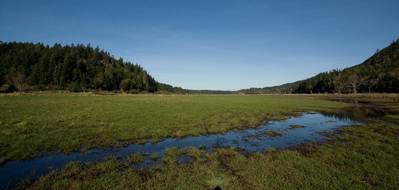NOAA: Oregon LNG Pipeline Will Have Minimal Impact
The U.S. National Oceanic and Atmospheric Administration (NOAA) said its analysis found that the construction and operation of a new liquefied natural gas (LNG) facility in Coos Bay, Ore. and its associated pipeline will have minimal impact on protected species and their habitats.
NOAA Fisheries issued a final biological opinion on construction and operation of the Jordan Cove terminal and the associated 229-mile long Pacific Connector LNG pipeline. After conducting a thorough review, NOAA scientists determined that the proposed action does not jeopardize protected species or adversely modify their critical habitat.
“NOAA’s opinion on Jordan Cove will pave the way for more American jobs and vastly expanded exports of domestically sourced liquified natural gas to prized Asian markets,” said Secretary of Commerce Wilbur Ross. “The speed of this decision was only made possible by recent reforms to the infrastructure permitting process, while still allowing the relevant authorities ample time to determine that no species or critical habitat would be jeopardized.”
The pipeline would connect the terminal to other major pipelines in the West, linking it to gas supplies across the U.S. and Canada. The terminal in Coos Bay would be capable of liquefying up to 1.04 billion cubic feet of natural gas per day for export to markets around the world.
This biological opinion considered the effects of construction and operation of the terminal and pipeline on 17 species listed under the Endangered Species Act and their critical habitats. The affected species include whales, sea turtles, salmon and other fish species. NOAA Fisheries determined that impacts on the species and their habitat would occur only in the short-term or on small scales, and would be dispersed broadly across about 250 miles.
The biological opinion fulfills requirements under the Fixing America’s Surface Transportation Act, known as FAST-41, and Executive Order 13807, which sets a goal of speeding environmental reviews.
The company, Pembina Pipeline Corporation, committed to important best management practices that would reduce effects on listed species, and proposed mitigation measures that will benefit species in the long-term.
The measures include restoration of at least 72 acres of tidelands and 2.7 acres of freshwater floodplain that provide important habitat for protected salmon and other species. The company would also establish at least 2.7 acres of eelgrass habitat. Additional measures would restore and improve freshwater habitat at 60 sites along the pipeline route, including placement of large wood in streams, riparian vegetation planting and fencing, fish passage improvement, and road improvements that will reduce delivery of fine sediment to streams.






